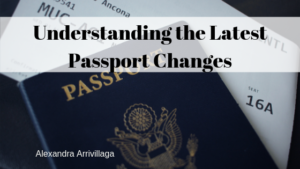For years the business industry has been solely male-dominated. Recently, women have started to take over the business industry, with women entrepreneurs making their names known and fighting back against the stereotypes, with an “anything you can do, I can do too.” attitude. With this, their mission does not seem to be slowing any time soon. Women around the world are becoming CEOs and setting Fortune 500 records; these are some of those women.
Dr. Celeste Fralick – Data Perseverance
Dr. Fralick is both an author and the Senior Principal Engineer and Cheif Data Scientist for McAfee. She helps to create a technical, analytic strategy that is used to integrate into McAfee consumer and enterprise products along with internal Business Intelligence. With almost 40 years of experience, Dr. Fralick has developed things like Machine learning and Deep Learning for analytics for eight different market types. She also holds a Ph.D. in Biomedical Engineering from Arizona State University, with a concentration in predictive analytics and neuroscience she is currently working on authoring Springer’s text on “Intelligent Analytics.”
Marina Tognetti – Entrepreneur
Marina Tognetti is both the founder and CEO of the website mYngle.com. While originally from Italy, Tognetti has managed to learn six languages and has lived in numerous countries. After spending almost 18 years working in a corporate career for Procter & Gamble, she decided to take the leap into becoming an entrepreneur and launched her website called mYngle in 2007. The site is a live language education system offering custom language learnings through video conferencing. With this program, you can learn 45 different languages from anywhere in the world.
Mina Jeong helps to advise different companies who want to find the right customer audience, building a reputation, and getting them in the right markets. As a B2B/B2C Tech and Consumer PR specialist, she has over 20 years of experience under her belt. She is also the current president of the Kora Public Relations Consultancy Association (KPRCA).
Radhika Jones – editor in chief of Vanity Fair Magazine
The successor after Gradon Carter, the first editor and chief of Vanity fair, Radhika Jones, has made the magazine hers by driving it towards articles that are a bit more relevant. More articles today are based on what’s currently going on in the world rather than who wore Dior last week. She has pushed for less stylized and glamorized style to promote the magazine towards more modern times and embracing the everyday.
Ursula Burns – Chairman and Executive Officer of Xerox Corporation
Ursula Burns served as the CEO and chairman of the Xerox corporation from 2009 – 2016. She was the first African American woman to hold this position at the Fortune 500 company. She was the first woman to gain to the position of the CEO of such a company after the progression of another female. Raised in low-income housing in the Lower East Side of Manhattan, Burns was one of three children raised by a single mother. Throughout her life, she excelled in math and earned a mechanical engineering degree from the Polytech Institute of New York University in Brooklyn. The same year Burns earned her degree, she went on to gain a master’s degree in mechanical engineering from Columbia University and then joined Xerox that summer as a mechanical engineering intern. In 2007 she was named the CEO, and in 2010 she went on to become chairman of the board.
With the world around us continually changing, more and more women are taking on prestigious positions. These inspiring women help the younger generation know that with hard work, they too can become successful and possibly be world leaders or the head of a significant fortune 500 company.
